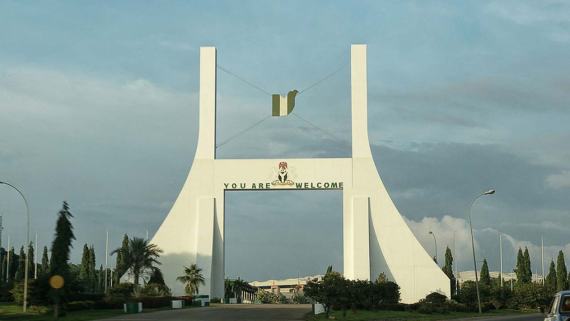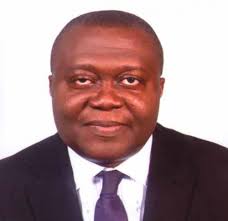The Taraba chapter of the All Progressives Congress (APC) has said that the exit of the former Minister of Women Affairs, Hajia Aisha Alhassan (popularly called Mama Taraba), from the party made no meaningful impact on the party.
The state Chairman of the party, Alhaji Ibrahim El-Sudi, said this in an interview with newsmen at the end of a closed door meeting with the Chairman of the party’s Caretaker Committee and Extraordinary Convention, Mai Mala Buni, on Tuesday in Abuja.
“That is a media hype, as you can see, all the juggernauts, movers and shakers of APC in Taraba are behind me.
“So, one person cannot destroy or do anything to APC,” El-Sudi said.
He said the former minister did not command so much political weight as the public was made to believe.
He further said that Alhassan only polled 16,000 votes when she left APC to contest the election in another party, while the APC candidate polled over 340 votes.
“So, her movement has not shaken APC in Taraba. It is in the heart of Taraba people that they want APC and they will continue to support APC, he said.
El-Sudi also spoke on the essence of his visit, saying that he led a delegation of Taraba APC to thank Buni “for the good work he is doing for the party.
“We also brought the problems of Taraba to the committee to look into them, with a view to solving them.
“After addressing the chairman and the committee, we were assured that they would look into our problem in order to solve the issues that are hanging in the air,” he said.
El-Sudi expressed confidence in the ability of the committee to address the Taraba issue, saying that it had so far restored peace in the party across the country.
“The chairman is a tested and trusted leader, he was a party secretary in his state.
“He knows the plethora of problems facing the party and he has already taken steps toward solving most of them,” El-Sudi said.
He appealed to the Federal Government to address the problem of infrastructure deficit in Taraba.
According to him, Taraba needs to have good road network from Numan to Jalingo.
He also expressed the need for the federal government to expedite action toward the completion of the Mambilla hydro electric power project.
In another development, the former Gov. of Zamfara State, Abdulaziz Yari, who was also at the APC national secretariat, said the state was ready for true reconciliation among the aggrieved members.
Yari, whose faction had engaged the Sen. Kabiru Marafa-led faction of the party in a supremacy battle since 2019, led a delegation of Zamfara APC to a meeting with Buni’s committee.
He said that to achieve genuine reconciliation in the state, all the aggrieved parties “must come to a round table with open mind.
“If everyone is ready for reconciliation, we will know because we have been in this game since 1999 and by God’s grace we can predict the future of APC in Zamfara in 2023,” he said.
Tag: Minister
-
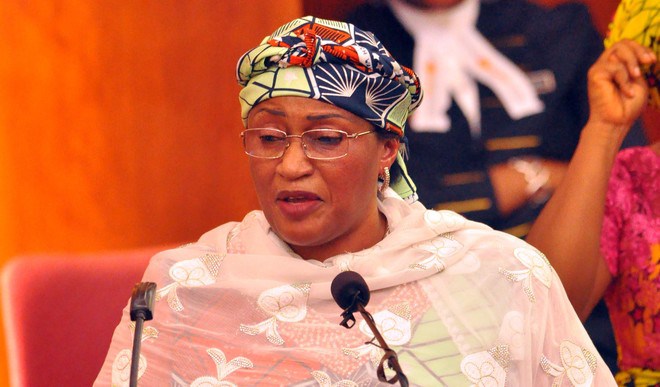
Buhari’s former minister is politically weightless – APC
-
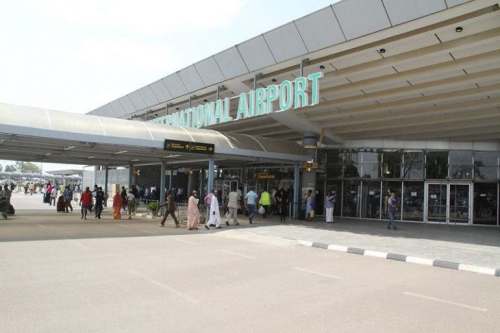
No going back on Int’l flights resumption — Minister
The Minister of Aviation, Sen. Hadi Sirika, says there is no going back on the Sept. 5, 2020 date for resumption of international flights as all preparations have been completed.
Speaking at the daily briefing of the Presidential Task Force (PTF) on COVID-19 in Abuja on Thursday, Sirika said all aviation preparations and COVID-19 protocols had been perfected and the airport was set for reopening.
The minister also revealed that Air France, Lufthansa, Ethihad airlines, Air Rwanda, Air Namibia, among others, were banned from coming into the country.
He, however, said that British Airways, Delta, Emirates, Qatar, Middle East, Turkish, Egypt Air, Ethiopian Airlines, Virgin Atlantic were among the airlines approved for operations with appropriate COVID-19 protocols.
Sirika further noted that intending passengers must register online, pay for COVID-19 test fee and upload the COVID-19 negative result not older than 72 hours before boarding.
While warning against sharp practices, he said any airline caught with passengers without COVID-19 negative result would be fined $3500 for each passenger and the passenger returned if he or she was a foreigner.
Giving more insights into the reasons for ban and the principle of reciprocity being applied to some countries, the minister said Nigeria was simply following what each country had done to the country.
The News Agency of Nigeria(NAN), reports that the principle means all countries that have banned flights from Nigeria, will also have planes from their countries banned from entry into Nigeria.
Some of the countries which have already banned flights from Nigeria are in the European Union (EU) as the EU included Nigeria on the banned countries on the first of July, 2020 when they opened their airspace.
NAN reports that an inspection of the airport showed that all areas had been adequately marked for social distancing, with necessary signals placed across the airport.
Also, hand sanitisers, water for hand washing and all necessary non pharmaceutical protocols had been installed at the airports in readiness for the resumption of flights.
Meanwhile, the Chairman, PTF on COVID-19, Mr Boss Mustapha, expressed worry over increasing cases of COVID-19 in Ethiopia and South Africa.
According to him, South Africa still has the highest case count in Africa but has fallen from the fifth to the sixth position in the world.
“In Ethiopia, the numbers have been on the increase.
“Both South Africa and Ethiopia are of interest to Nigeria in view of the passenger traffic between Nigeria and the two countries and our plans to reopen the international air space,” Mustapha said.
-
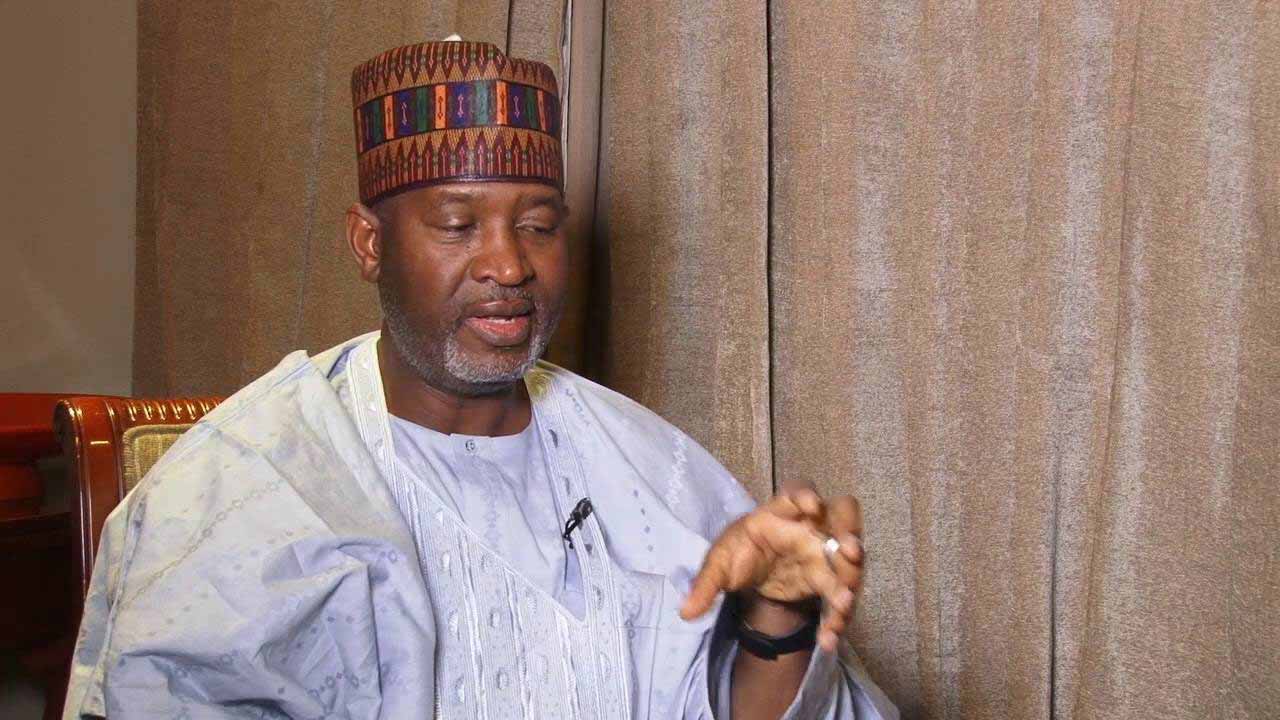
Minister relocates to Enugu ahead reopening of airport
The Minister of Aviation, Senator Hadi Sirika, has relocated to Enugu with his officials and aides for adequate preparation towards the reopening of the Akanu Ibiam International Airport on Sunday.
Sirika, in a statement by James Odaudu, Director of Public Affairs in the ministry, on Thursday in Abuja, said the purpose of his relocation was to ensure nothing hindered the planned reopening.
The minister said his relocation to Enugu was also to monitor the finishing touches being done by the contractors handling the runway reconstruction and installation of facilities at the airport.
He said: “There have been apprehensions about the possibility of the resumption of flights at the airport as planned.
“This was as a result of an unwarranted and ill-advised pulling down of about two kilometres stretch of perimeter fence of the airport by an individual claiming ownership of the land on which the fence was raised.”
The Minister gave assurance that everything possible was being done to ensure that the people of the South East region begin to enjoy flight operations at the airport from Sunday.
Sirika commended the governors of the South East States, especially Governor Ifeanyi Ugwuanyi of Enugu State, for joining efforts with the ministry to ensure a successful return of activities at the airport.
The Akanu Ibiam International Airport Enugu was shut down in August 2019 to enable the Federal Government reconstruct the runway, which had become so dilapidated that aviation experts described it as an accident waiting to happen.
The News Agency of Nigeria reports that during the earlier rehabilitation of the runway of the Nnamdi Azikiwe International Airport, Abuja, Sirika had similarly relocated to Kaduna for a number of days to ensure a seamless operation of flights at the Kaduna airport.
Kaduna airport then served as an alternate to the shut Abuja airport.
-
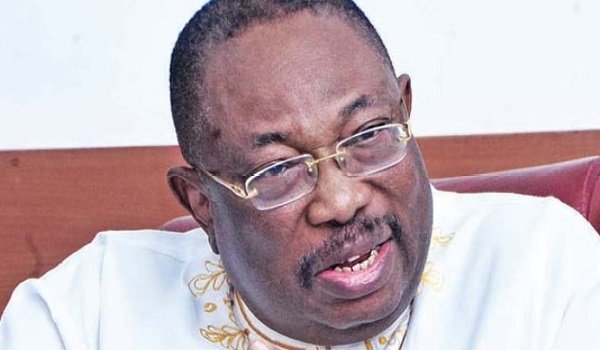
BREAKING: Ex- Minister Sam Momah is dead
Former Minister of Science and Technology, Major General Sam Momah (Rtd.) is dead.
He died on Wednesday afternoon after complicated diabetic issues.
He died having celebrated his 77th birthday on July 6 during which he launched his 13th book titled: “Restructuring to save Nigeria from post-oil disintegration.”
TheNewsGuru reports that the one- time Adjutant General and Commander, Training and Doctrine Command was also the pioneer Director at National War College.
He is survived by a wife, children and grandchildren.
-
Called to minister to God – Femi Aribisala
By Femi Aribisala
Those who minister to God lament over the things that break God’s heart. We grieve over the afflictions of Joseph. (Amos 6:6). We commiserate with a distressed Father who daily sees His beloved children going astray, taking the wrong decisions, and falling into the traps of the enemy. We feel God’s pain and anguish at the sinful condition of the world.
The world God created is broken. The people He loves have gone astray. Therefore: “Gird yourselves and lament, you priests; wail, you who minister before the altar; come, lie all night in sackcloth, you who minister to my God.” (Joel 1:13).
“Let the priests, who minister to the Lord, weep between the porch and the altar; let them say,” Spare Your people, O Lord, and do not give Your heritage to reproach.” (Joel 1:17). “Then the Lord will be zealous for His land, and pity His people.” (Joel 2:18).
It also means sitting sometimes quietly in God’s presence, as we share in His grief. This is what the friends of Job did: “They sat down with him on the ground seven days and seven nights, and no one spoke a word to him, for they saw that his grief was very great.” (Job 2:13).
Entering into God’s pain
God created man in His image and likeness. He did this because He wants us to be exactly like His Son Jesus. Paul says: “For whom He foreknew, He also predestined to be conformed to the image of His Son, that He might be the firstborn among many brethren.” (Romans 8:29). For this reason, we are being transformed by the Holy Spirit into the image of Christ from glory to glory. (2 Corinthians 3:18).
God wants us to share in His divine nature. That is one of the reasons why He required Abraham to offer up his son, Isaac. God planned to offer up Jesus, His only begotten Son, for our sins. Therefore, He asked Abraham to offer up Isaac, his only begotten son, for God. He wanted to see if Abraham would agree to go through the same ordeal that He would go through in offering up His Son Jesus for the sins of the world.
By agreeing to sacrifice his son, Abraham ministered to God. Heaven is designed for those who are prepared to be of the same mind in the Lord. Accordingly, Paul says: “Let this mind be in you which was also in Christ Jesus.” (Philippians 2:5).
Fellowship of sufferings
Paul prayed concerning Jesus: “That I may know Him and the power of His resurrection, and the fellowship of His sufferings.” (Philippians 3:10).
God wants those who minister to Him to be like Jesus; men and women of sufferings and sorrow, acquainted with grief. (Isaiah 53:3). God appeared to Ezekiel, gave him a book, and told him to eat it. The book was full of lamentations, mourning, and woe. (Ezekiel 2:9-10). God wanted Ezekiel to identify fully with his feelings of distress before going to preach to Israel. Similarly, Jesus redeemed mankind in the travail of His soul. Isaiah 53:11).
God told Elijah that he had prepared a widow in Zarephath to feed him. But when he got to her, he discovered that she had no food. So, how had God prepared her? He prepared her through pain and suffering. He prepared her through the loss of her husband and in famine. If we have not been prepared through pain and suffering, losses, and sorrow, then we cannot effectively minister to God.
Hannah was a woman of sorrow over her barrenness. She ministered to God in her distress and God used her sorrows to produce Samuel, a mighty prophet in Israel. God was grieved over the sins of Eli the High Priest and his sons. He needed to share his grief so He turned to a woman of prayer called Hannah. He shut her womb and brought reproach on her from her rival Peninnah. So, Hannah was in great distress but her distress was evidence of God’s love.
In her distress, Hannah ministered to God in prayer. God wanted a mighty prophet as a saviour of Israel: Hannah wanted a son. So, God took Hannah to the place where, in her distress, she struck a tremendous bargain with God. If God were to give Hannah a son, Hannah would give him up for the Lord. Thereby, Hannah entered into God’s ordeal of giving up His only begotten Son for the salvation of the world.
Atonement with God
To minister to God, we have to be one with Him. We have to feel through His heart and see through His eyes. Therefore, God takes us through pain, losses, and adversities because He wants us to identify with Him.
God shares in our affliction: “In all (our) affliction He (is) afflicted, and the Angel of His Presence saves (us).” (Isaiah 63:9). Jesus did likewise: “He was wounded for our transgressions, he was bruised for our iniquities; the chastisement for our peace was upon Him, and by His stripes we are healed.” (Isaiah 53:5).
In the same manner, God wants his ministers to share in His afflictions. God suffers from unrequited love. He loves us but we don’t love Him back. He loves us but we love money life and women. We cannot understand the depth of God’s pain at the unfaithfulness of men until we have also experienced the unfaithfulness of our loved ones.
So, out of God’s love, He takes us through the experience of an unfaithful husband or an unfaithful wife. Accordingly, God said to Hosea: “Go again, love a woman who is loved by a lover and is committing adultery, just like the love of the Lord for the children of Israel, who look to other gods and love the raisin cakes of the pagans.” (Hosea 3:1).
When we share in God’s pain, He then empowers us to share in the pain of others. You cannot operate in a healing ministry if you do not minister to God.
Expressing God’s anguish
God does not just give us His Spirit and himself, He also wants to give us His life and His experiences. God became the son of man so that man can become the son of God. When God became a man, He expressed our anguish and pain: “My God, my God, why have you forsaken me?” (Matthew 27:46/ Psalm 22:1). Now that man has become a son of God, we should express God’s anguish and pain to God.
Ministering to God means listening to God’s heartbeat. We are now the body of Christ, which means we are now part of God. Therefore, we must act accordingly by taking up God’s yoke and by bearing His burdens.
When tragedies occur as is happening right now with this coronavirus pandemic, the first thing we need to do is minister to God. If people are dying, you can be sure God is hurting: “‘As I live,’ says the Lord God, ‘I have no pleasure in the death of the wicked, but that the wicked turn from his way and live. Turn, turn from your evil ways! For why should you die, O house of Israel?’” (Ezekiel 33:11).
CONCLUDED
-
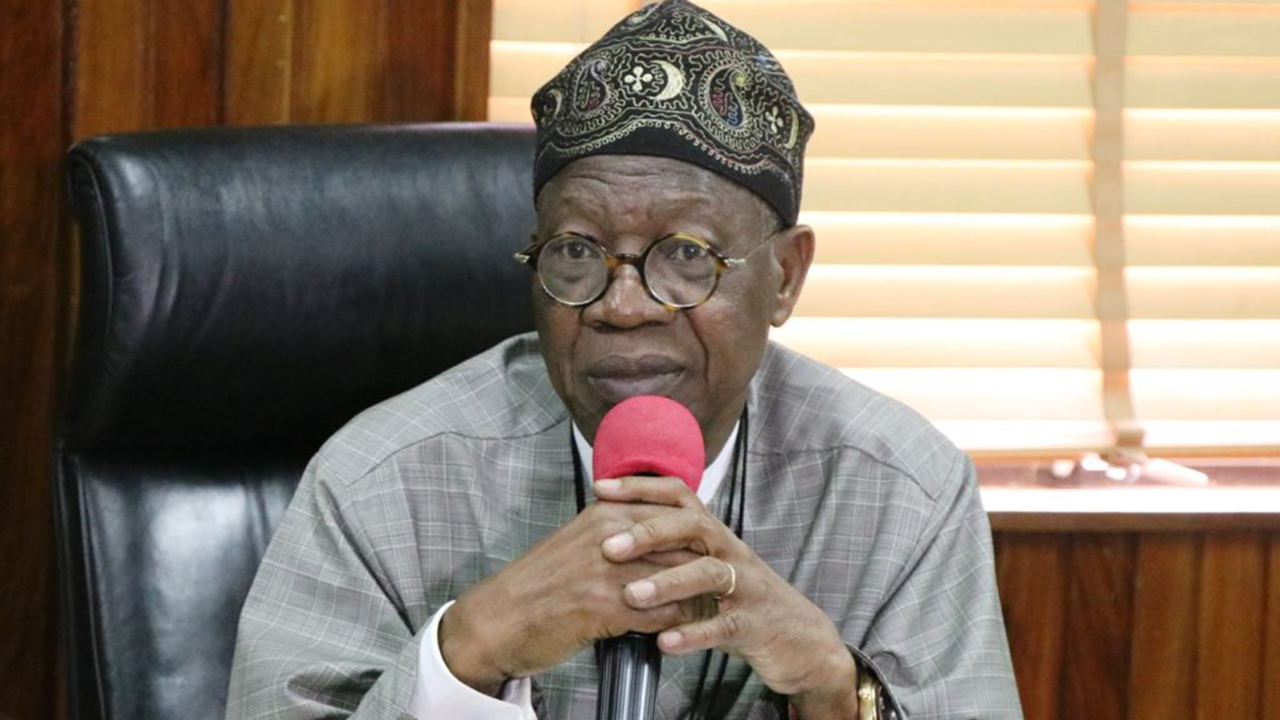
A Minister’s good turn for the broadcast industry, By Okoh Aihe
By Okoh Aihe
Once I observed that a number of newspaper publications have fallen to thirty two pages shortly after the ugly debut of COVID-19, I knew that the Media was going to be in serious trouble. Even in good times, the Nigerian media enterprise scraps for survival, employing all the logics in the books to be able to pay salaries and embark on daily operations. Just trying to remain in business and avoid closure which would signal a business misfortune and of course a dearth of infotainment service provision.
But the times are not normal. Businesses have been hit in an unusual way and the media remains a major casualty. So, climbing down from about fifty-six pages which most of the newspapers used to publish pre- COVID-19 means that before most of the media owners could begin to summon the spirit of ingenuity, the commercials have taken a flight. This was expected. In bad times, advertising is usually the last consideration in the plan of an organization going on a dusty road. Even in strong economies the media is panting for life!
I started with the print because once you hold a newspaper, you are able to determine the level of business going on in the media house. For many years, my tradition has been to look at the front and the back of the paper, and then open to the inside pages to count the number of adverts. Since the early 90s when Femi Kusa, a well-respected former editor of The Guardian, introduced some of us to commercial journalism, it has been my daily routine. His philosophy which worked quite well was that a good editorial display can attract a lot of advertising support. It was like a magic wand which The Guardian waved very successfully. But times are different. When you look at the papers trying to fight back to life now you know the struggle is going to be long and very intense.
The pain of the broadcast media is masked by the glitz and glamour and a seeming evocative chant usually displayed by onscreen presenters or the very velvety or champagne voice belting out of the radio stations even if the characters carry terrible trauma within them that is buried in the layers of those well-tailored clothes. As the late Prof Ola Rotimi would say, all lizards lie prostrate on the ground, so it is difficult to tell the one with a stomach ache. With that beauty and elevating live show presentations, it is much more difficult to know which station has headache. That is, for people in discomforting unawareness of the happenings in the broadcast sector long before the coming of COVID-19.
I write in praise of members of the Broadcasting Organisation of Nigeria (BON) who damned all pretensions about claims to a glamorous business and presented a reality check to the Nigerian government through the Honourable Minister of Information and Culture, Alhaji Lai Mohammed, that broadcasting was in dire straits and so many practitioners were at the exit gate of a profession that humanizes even the troubled.
You may not like the Information and Culture Minister because of his superficial predictability in responding to national issues. As I listened to him last week respond to the cries of the broadcast sector, he enjoyed my support and admiration just as he again surprised me a few days later when he handed the National Theatre over to the Central Bank and the Bankers’ Committee to resuscitate or is it rehabilitate and restore? We shall stick to broadcasting today.
The times we are would always challenge us to reason on the go. The Minister demonstrated that at a press briefing. Flanked by officials of the National Broadcasting Commission (NBC), the Minister announced a number of Broadcast Industry-specific measures aimed at giving a lifeline to the industry which, though largely a business, continues to function as critical social service of sorts, which is relevant to the information and enlightenment needs of the people.
The measures include the following: 60 percent debt forgiveness for all debtor broadcast stations in the country; the criterion for enjoying the debt forgiveness is for debtor stations to pay 40 percent of their existing debt within the next 3months; any station that is unable to pay the balance of 40 percent indebtedness within the 3 months window shall forfeit the opportunity to enjoy the stated debt forgiveness; the debt forgiveness shall apply to functional licensed Terrestrial Radio and Television stations only; the debt forgiveness and discount shall not apply to pay TV service operators in Nigeria; the effective date of the debt forgiveness shall be July 10th 2020 to October 6th, 2020; Broadcast stations will also enjoy 30 percent discount on licenses renewable; the existing license fee is further discounted by 30 per cent for all Open Terrestrial Television services effective July 10th, 2020.
When trouble knocks on the door, this is the way to reason; this is the way to give hope and assurances; this is the way to save lives; this is the way to add a little salt and pepper to our fading hubris that we all matter as a people, no matter the status in the society, in our contributions to the collective pursuit of national dream.
While hoping that the broadcast operators are able to respond positively to the Minister’s generous survival capsule and be able to appreciate him for a rare understanding of a very intrusive situational challenge, the Minister should also extend such understanding to another story that is equally unfolding and getting very inchoate contributions and responses.
Also speaking last week, the Minister had said pay-as-you-go service has come to stay for the DSTV sector. To the privileged Nigerians who watch pay TV, that is very good music to the ears. For a people who hardly want to pay for anything such response is expected, and there will be so much handclapping for the Minister that serious issues will suffer a blurring. This is the reason I am appealing to the Minister to consider the variegated differences between the broadcast technology and the telecoms platforms where pay-as-you-go is a welcome feature. While it is very salutary to work towards a technology that can unhinge payment and costing patterns in the pay TV sector, it will be cheaper than words to imagine that such technology can be decreed into existence irrespective of the laws of deregulation that have made broadcasting a delight in Nigeria. This has been my position on this matter and you can imagine I enjoyed a smirk last week when the smooth-talking but highly resourced boss of the Federal Competition and Consumer Protection Commission (FCCPC), Mr Babatunde Irufera, maintained a straight face and told Channel TV crew that the pay-as-you-go billing model used in telecommunications was not going to be very easy to implement on pay TV.
The other issue is the complaints by one of the operators that it is losing money on some of its sporting rights in Nigeria and gave intervening reasons responsible for such emerging losses. Here is my concern. I have been in places where such issues are raised and the spontaneous response would be “to let them go if they don’t want to stay and do business in our environment.” In a deregulated environment that is a very barbaric and selfish response. Such response attenuates the standing of a nation internationally. The path of reason is that when an operator complains of difficulties in an operating environment, it is the responsibility of the regulator to carry out an integrity or a stress test of the market and quickly nip the issues that may be conspiring to undermine the market.
Like the rest of the world, Nigeria needs a healthy market serviced and patronized by diverse interests. It is the responsibility of the market umpire to provide a measured balance for the various interests and develop lasting buffers to accommodate dissenting opinions that can add form and maturity to the market.
Okoh Aihe writes from Abuja
-

EFCC arrest former Minister over N5m fraud
The Economic and Financial Crime Commission (EFCC) has arrested a former Minister from Sokoto state over alleged five million Naira fraud.
The Minister (name withheld) was alleged to have collected rams and money from individuals, amounting to about five million Naira during the 2019 Sallah celebration.
Confirming the arrest, the zonal head of the agency in charge of Sokoto, Kebbi and Zamfara states, Abdullahi Lawal said the former Minister was still in their custody and as a substantial amount of money was recovered from him.
He said that their action was based on the petition brought to them by his victims.
According to him, the said Minister had collected some rams and money from his victims with the promise to pay back at a certain period of time but he failed to fulfil his pledge. Lawal said that the agency had recovered about N400 million from January to date from corrupt individuals.
He added that seven convictions were secured by the agency in the period under review. He noted that over about 100 petitions were received by the agency, bordering on advanced fee fraud, money laundry, land matters among others.
The zonal head also said that leaders of some traders associations were invited over alleged diversion of the one billion Naira loan to traders by the Sokoto state government.
-
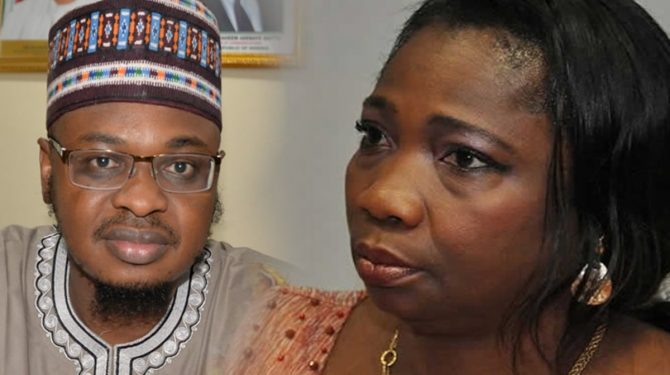
Pantami, Abike-Dabiri Saga: Again, NCC absolves Minister of involvement in office space allocation process
The Nigerian Communications Commission (NCC) has, again, clarified that the Hon. Minister of Communications and Digital Economy, Dr. Isa Ali Ibrahim Pantami, was never involved in the process of offer of office allocation to the Nigerians in Diaspora Commission (NiDCOM) at the NCC’s Communications and Digital Economy Complex located at Mbora District, Abuja, as the public is being made to believe.
The Commission reiterated this position in a press statement signed by its Director Public Affairs, Dr. Henry Nkemadu, in which it made further clarifications to the members of public and other stakeholders on the situation.
“For the avoidance of doubt, the Honourable Minister of Communications and Digital Economy, Dr. Isa Ali Ibrahim Pantami, was never involved in the offer to the office space, nor in the withdrawal of the offer for same office space. The Minister should not, therefore, be brought into the issue,” he said.
According to Dr. Nkemadu, the decision to withdraw the offer of office space from NiDCOM was purely of the NCC, the custodian of the office complex.
“It should, however, be made abundantly clear that the withdrawal of the offer of the office space, which was unconditionally given, in the first instance, to NiDCOM, was informed by exigencies and change in priorities within the NCC, which led to the taking back of the office space earlier allocated with intention of finding a suitable replacement for NiDCOM,” he said.
The Commission, therefore, reiterates its confidence in the leadership, person and office of the Honourable Minister of Communications and Digital Economy, Dr. Isa Ali Ibrahim Pantami.
